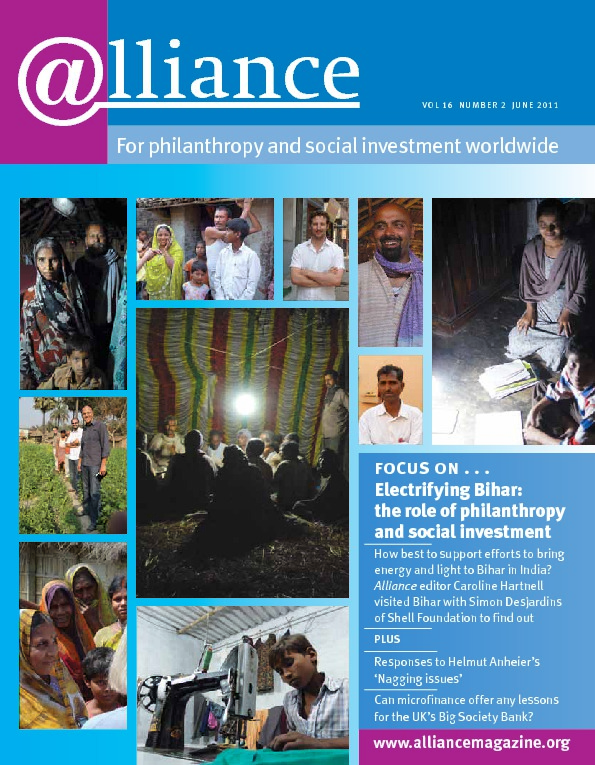The job of philanthropic adviser is quite new and still underdeveloped in continental Europe. Following the appearance in the US of a new generation of involved and proselytizing mega-philanthropists (as exemplified by the Giving Pledge), the philanthropic sector has seen the emergence of a demand for professional advice. The UK has been far in advance of other European countries, with the profession of philanthropic adviser developing and the need for it established.
The philanthropic advisory ‘market’ in continental Europe was divided, until recently, between large foundations or non-profit organizations (eg King Baudouin Foundation, Caritas) offering advice and tools to potential philanthropists on a pro bono basis, and a few private banks with internal philanthropy services for their clients.
The growing number of high net worth individuals, the increase in the overall amount of their assets and the fact that they are becoming rich younger – by selling their own companies rather than by inheritance – has totally changed the approach to philanthropy. This change has offered the opportunity to an emerging class of philanthropic advisers.
Three main characteristics define them: they are independent (they work for their clients, not for a non-profit organization or a specific provider), they are experienced (both in the non-profit sector and in dealing with the wealth of individuals, families or corporations) and they are obedient to a set of ethical rules (payment in fees, special attention to conflicts of interest).
In many ways, a philanthropic adviser is like a family officer. Focused on the needs of their client, their role is to define the main purpose and motivation of the philanthropist and the best way to achieve that purpose. They have to combine the skills of experts (lawyers, bankers, field practitioners) with knowledge and experience of the sector. As the sector grows and becomes more diverse, so does the value and complexity of the role of the adviser. They are confronted with questions as varied as how to have impact in the field of biomedical research, what kind of philanthropic vehicle to set up to allow family governance and funding from their own corporation, or, straightforwardly, which organization to give to.
Comparing European advisers with their US, British and Canadian counterparts
Compared with the sector in North America and the UK, philanthropic advisers in continental Europe are mainly working at a small scale. The fact that there is no badge of non-profit status like the 501(c)(3) in the US or Charity Commission registration in the UK clearly has an impact on the cost and range of their services in a market in which free advice given by non-profits or banks is the general rule. Indeed, to offer paid services, even in a non-profit structure, incurs corporate tax (there are some exemptions but one has to prove that the profit-making activity is not the main purpose of the organization).
A second difference between the European and Anglo-American experience is the slow evolution and disparity of the market. Some philanthropists realized sooner than others that investing in the philanthropic sector requires professional advice. The model of venture philanthropy promoted by the European Venture Philanthropy Association, which aims at creating impact by efficient use of innovative tools (funds, know-how, network), is symbolic of this new awareness.
As in every form of consultancy, being a philanthropic adviser means being fully abreast of philanthropic trends and innovations. It is ironic that they are increasing in professionalism and in knowledge of a very complex sector in order to serve a group which mainly sees itself as setting up straightforward answers to simple needs. Most European philanthropists,[1] even if they are successful entrepreneurs, consider philanthropy as an amateur occupation.
In conclusion, philanthropic advisers in continental Europe are attaining recognition and legitimacy as the number of major European philanthropists increases. Nevertheless, they are better known to banks and family offices than to the philanthropists who need to be informed. They have still to gain institutional recognition by promoting what it is they have to offer and its value, and by embracing common standards.
1 Survey on philanthropic motivations of HNWI in continental Europe: http://www.bnpparibas.com.sg/en/private_bank/news.asp?Code=LPOI-7T9BE8
Jerome Kohler is the founder and director of L’Initiative Philanthropique, a European philanthropic advisers firm. Email jeromekohler@aol.com





Comments (0)